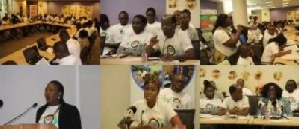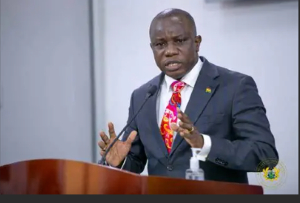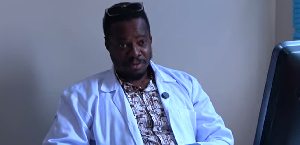Actors in poverty eradication have stressed the need for the implementation of targeted rather than general interventions to address issues of social inclusion that would contribute to deepening inequality and poverty in Ghana.
According to them, properly targeting interventions on issues such as disability, child marriage, and other social issues would help to ensure that the target beneficiaries were reached and inequalities addressed.
Mr Emmanuel Nkrumah, Senior Water and Sanitation and Acting Country Manager, speaking at an in-country dialogue session and video conference to mark the International Day for the Eradication of Poverty-End Poverty Day (EPD) 2017, in Accra, said stakeholders in poverty eradication continued to lament about the same challenges year-on-year because the actions taken in the sector were largely generic.
“...It should be targeted, it should not be generic,” he stressed, adding that challenges like urbanisation, would only increase in the next few years as most facilities were concentrated in these areas.
The way to go, according to Mr Nkrumah, was to do two things: first, come up with interventions that target the lower income class in urban areas, such as providing appropriate accommodation for ‘Kayayei’ (head porters) in Accra.
He explained that the girls were vulnerable to attacks including; rape and thus interventions had to target them, and secondly, improve conditions in the rural areas by boosting the commercial sectors, providing water, electricity and other necessities that would discourage rural-urban migration.
He also stressed the need to address the problem of child or forced marriages by enforcing the laws against such practices that exist.
“It is not a matter of having laws; it’s not a matter of having policies, it’s a matter of enforcing them…Until we enforce these things and make sure that they are working for the low income people, we will always come and make addresses, celebrate anniversaries and talk about issues. The time has come for us to take pragmatic solutions,” he stated.
Ms. Gifty Twum Ampofo, Deputy Minister of Gender, Children and Social Protection, said in setting targets, it was important that they were specific, measurable and achievable in order to enable easy monitoring.
She noted that when targeting was done well, they would serve as motivation for addressing the critical issues of inequality that contribute to poverty, and also give the World Bank concrete milestones to hold government and other actors accountable for, when funding such projects.
Ms Ampofo said the Gender Ministry had chalked some successes in its poverty alleviation initiatives including; the implementation of the Livelihoods Empowerment Against Poverty (LEAP) programmes, which she noted had improved the lives of many people, the Ghana school feeding programme, which encouraged school attendance, especially for vulnerable children who otherwise could not have stayed in school.
She admitted, however, that a lot more needed to be done to ensure the eradication of poverty by 2030, in line with global goals.
She added that the Ghana National Household Registry, a programme being supported by the World Bank, would help to provide better data on the people as well as the reasons for their poverty, which, she said, would help to better target interventions.
The global theme for this year’s End Poverty Day is Mobility, with a focus on social inclusion and looks at how the gap between the ‘haves’ and ‘have nots’ can be bridged. The dialogue session also highlighted the work of policy makers, CSOs, and development partners to improve the lives and livelihoods of the vulnerable in society.
Business News of Saturday, 21 October 2017
Source: ghananewsagency.org













